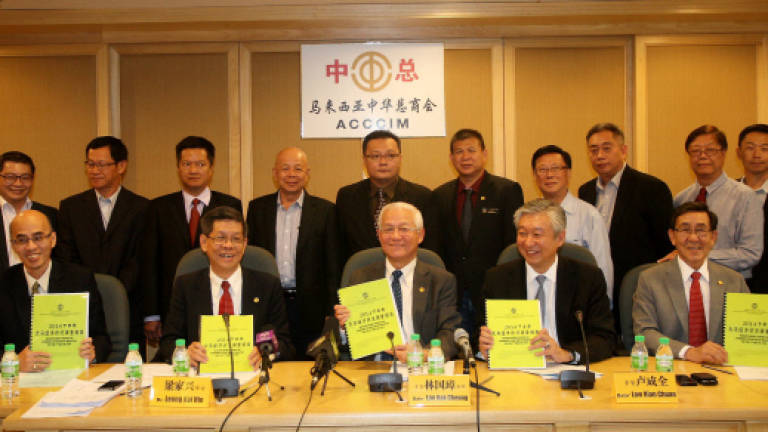ACCCIM bearish on economic outlook

KUALA LUMPUR: The Chinese business community is more pessimistic about the economic outlook for 2015 and 2016, but expects to see an improvement in 2017, according to a survey by the Associated Chinese Chambers of Commerce and Industry of Malaysia (ACCCIM).
The survey revealed that 49% of respondents expect the economy to deteriorate in the second half of the year, 42% believe it will remain unchanged and only 9% see growth.
A total of 364 respondents across different sectors participated in the survey.
Speaking at a press conference in conjunction with the release of the survey report, ACCCIM Socio-Economic Research Committee deputy chairman Peck Boon Soon said the unexciting economic growth is reflected in an expected marginal drop in sales performance, production volumes and other business indicators.
He said the data collected suggests that the economic situation for Malaysia in 2015 will not be favourable, in response to the implementation of GST (goods and services tax).
Peck, who is also the vice president of Economics Research at RHB Research, added that falling oil prices, which affect government spending in oil and gas investments, as well as the slowdown in the property market will weigh on economic growth.
"As a whole, the risk of it (economic growth) falling below 5% is there," he said.
Given rising costs of doing business and compliance requirements in the country, 50.8% of respondents hope for government policies that are business friendly in order to support and promote business activities.
For instance, the renewable of foreign labour work permits have become one of the main issues. Others include the minimum wage policy, extension of the retirement age, increased EPF contributions, increase in bank charges for the use of cheques for payments and foreign workers levy.
About 57% of respondents said they would still be able to maintain their operations despite the rise in costs of doing business.
Besides government policies, domestic competition is the second most important reason that affects business performance, whereby the less robust economic growth in recent years has led to more competition among small and medium enterprises (SMEs) to maintain the market share.
On the impact of low commodity prices, 40% of respondents cited that their businesses would be affected negatively on the back of lower earnings arising from expected lower demand and consumer spending.
On the currency front, Peck noted that the ringgit will continue to fluctuate following the capital outflow from Malaysia due to the US monetary policy. He expects the ringgit to be in the range of 3.65 to 3.75 against the US dollar.
Peck opines that post GST implementation, the underlying inflation rate could be higher at 3.3% to 3.5% for 2015 compared with Bank Negara's projection of 2% to 3%.